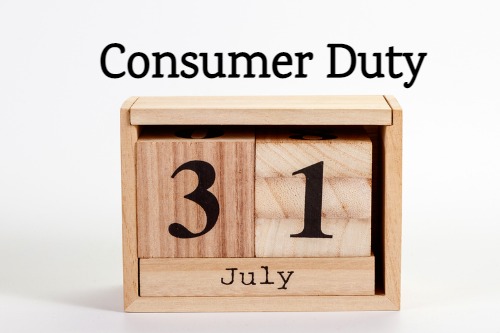Consumer Duty – Covéa is ready

Authored by Vicki Heslop, Customer Experience Director, Covéa Insurance
With the deadline for the consumer duty regulation just around the corner, we took the opportunity to get together with our brokers at our recent Personal Lines networking event to discuss how we are bringing the consumer duty to life within our organisations and what further support is needed to ensure we hit the ground running from 31st July.
Here are some key take aways from discussions we had with various broker partners at BIBA 2023:
More than a tick box exercise
Consumer duty is fundamentally a shift in our perspective, putting ourselves in the shoes of the customer, whether they be individuals or a commercial business. The duty places a stronger emphasis than ever before on the value we provide to customers at every stage in the distribution chain. It’s about so much more than a simple tick box exercise checking off a list of regulatory obligations or ‘another’ compliance project. It’s a permanent and irreversible shift in the way we operate and it raises the bar in our ability to evidence that we are putting customers at the heart of all we do.
Evidence is key
Against the backdrop of the cost-of-living crisis, the duty provides all organisations with the opportunity to get closer to their customer needs and move beyond the concept of insurance as a “grudge” purchase. The duty principles provide the foundations for firms to evidence trust, fair value and good outcomes throughout the entire customer lifecycle, not just at the point of claim. Paying careful attention to how the customer’s circumstances may change and supporting those who are vulnerable or facing difficulties is vital to responding appropriately to their needs – whether they be physical, emotional or financial.
Customer-led data strategy
Importantly the duty requires that organisations define what “good” looks like and that they capture, measure and demonstrate positive customer outcomes, which can be evidenced through meaningful MI. Data strategy is therefore vital to the consumer duty as it places an emphasis on understanding what fair value looks like from the customer perspective. We shouldn’t assume that because a customer hasn’t complained that they had a good experience. We must look at the data and evidence across the full customer journey and measure engagement using a broad set of customer-led MI such as client feedback, NPS, surveys, customer reviews and complaints data.
Culture shift driven from the top
As well as looking at processes and data capture as part of a bottom-up approach, vitally organisations should conduct a top-down review, ensuring that there is senior accountability and ownership for the duty, including but not limited to board champions and ensuring that this duty is woven into the very core of the company vision and values.





